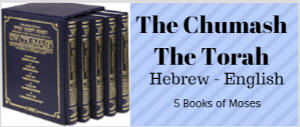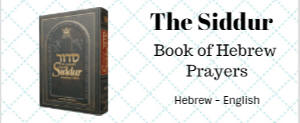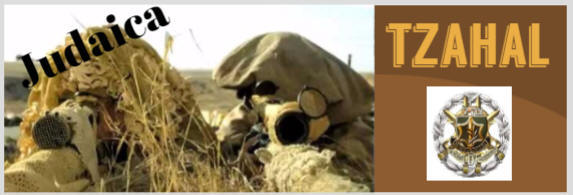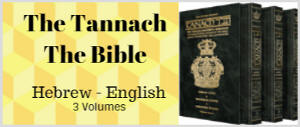.
|
|
|
אוַיֵּ֥לֶךְ
אִ֖ישׁ מִבֵּ֣ית
לֵוִ֑י
וַיִּקַּ֖ח
אֶת־בַּת־לֵוִֽי:
|
|
|
|
|
2:2
|
The woman became
pregnant and had
a son.
She realized how
extraordinary
[the child] was,
and she kept him
hidden for three
months.
Vatahar ha'ishah vateled
ben vatere oto
ki-tov hu
vatitspenehu
shloshah
yerachim.
|
|
|
בוַתַּ֥הַר
הָֽאִשָּׁ֖ה
וַתֵּ֣לֶד בֵּ֑ן
וַתֵּ֤רֶא אֹתוֹ֙
כִּי־ט֣וֹב ה֔וּא
וַתִּצְפְּנֵ֖הוּ
שְׁלשָׁ֥ה
יְרָחִֽים:
|
|
|
|
|
2:3
|
When she could
no longer hide
him, she took a papyrus box,
coating it with asphalt and
pitch, and she
placed the child
in it. She
placed it in
the rushes near
the bank of the
Nile.
Velo-yachlah od hatsfino
vatikach-lo
tevat gome
vatachmerah
vachemar
uvazafet vatasem
bah et-hayeled
vatasem basuf
al-sfat haYe'or.
|
|
|
גוְלֹא־יָֽכְלָ֣ה
עוֹד֘
הַצְּפִינוֹ֒
וַתִּקַח־לוֹ֙
תֵּ֣בַת גֹּ֔מֶא
וַתַּחְמְרָ֥ה
בַֽחֵמָ֖ר
וּבַזָּ֑פֶת
וַתָּ֤שֶׂם
בָּהּ֙
אֶת־הַיֶּ֔לֶד
וַתָּ֥שֶׂם
בַּסּ֖וּף
עַל־שְׂפַ֥ת
הַיְאֹֽר:
|
|
|
|
|
2:4
|
[The child's] sister stood
herself at a
distance to see
what would
happen to him.
Vatetatsav achoto merachok
lede'ah
mah-ye'aseh lo.
|
|
|
דוַתֵּֽתַצַּ֥ב
אֲחֹת֖וֹ
מֵֽרָחֹ֑ק
לְדֵעָ֕ה
מַה־יֵּֽעָשֶׂ֖ה
לֽוֹ:
|
|
|
|
|
2:5
|
Pharaoh's
daughter went
to bathe in the
Nile, while her
maids walked
along the Nile's
edge. She saw
the box in the
rushes, andsent
her slave-girl to
fetch it.
Vatered bat-Par'oh
lirchots
al-haYe'or
vena'aroteyha
holchot al-yad
haYe'or vatere
et-hatevah
betoch hasuf
vatishlach
et-amatah
vatikacheha.
|
|
|
הוַתֵּ֤רֶד
בַּת־פַּרְעֹה֙
לִרְחֹ֣ץ
עַל־הַיְאֹ֔ר
וְנַֽעֲרֹתֶ֥יהָ
הֹֽלְכֹ֖ת
עַל־יַ֣ד
הַיְאֹ֑ר
וַתֵּ֤רֶא
אֶת־הַתֵּבָה֙
בְּת֣וֹךְ
הַסּ֔וּף
וַתִּשְׁלַ֥ח
אֶת־אֲמָתָ֖הּ
וַתִּקָּחֶֽהָ:
|
|
|
|
|
2:6
|
Opening [the
box] she saw the
boy. The infant
began to cry,
and she had pity
on it. 'It is
one of the
Hebrew boys,'
she said.
Vatiftach
vatir'ehu
et-hayeled
vehineh na'ar
bocheh vatachmol
alav vatomer
miyaldey
ha'Ivrim zeh.
|
|
|
ווַתִּפְתַּח֙
וַתִּרְאֵ֣הוּ
אֶת־הַיֶּ֔לֶד
וְהִנֵּה־נַ֖עַר
בֹּכֶ֑ה
וַתַּחְמֹ֣ל
עָלָ֔יו
וַתֹּ֕אמֶר
מִיַּלְדֵ֥י
הָֽעִבְרִ֖ים
זֶֽה:
|
|
|
|
|
2:7
|
[The infant's]
sister said to
Pharaoh's
daughter, 'Shall
I go and call a
Hebrew woman to
nurse the child
for you?'
Vatomer achoto
el-bat-Par'oh
ha'elech
vekarati lach
ishah meyneket
min ha'Ivriot
veteynik lach
et-hayaled.
|
|
|
זוַתֹּ֣אמֶר
אֲחֹתוֹ֘
אֶל־בַּת־פַּרְעֹה֒
הַֽאֵלֵ֗ךְ
וְקָרָ֤אתִי
לָךְ֙ אִשָּׁ֣ה
מֵינֶ֔קֶת מִ֖ן
הָֽעִבְרִיֹּ֑ת
וְתֵינִ֥ק לָ֖ךְ
אֶת־הַיָּֽלֶד:
|
|
|
|
|
2:8
|
'Go,' replied
Pharaoh's
daughter. The
young girl went
and got the
child's own
mother.
Vatomer-lah
bat-Par'oh lechi
vatelech
ha'almah vatikra
et-em hayaled.
|
|
|
חוַתֹּֽאמֶר־לָ֥הּ
בַּת־פַּרְעֹ֖ה
לֵ֑כִי
וַתֵּ֨לֶךְ֙
הָֽעַלְמָ֔ה
וַתִּקְרָ֖א
אֶת־אֵ֥ם
הַיָּֽלֶד:
|
|
|
|
|
2:9
|
'Take this child
and nurse it,'
said Pharaoh's
daughter to [the
mother]. 'I will
pay you a fee.'
The woman took
the child and
nursed it.
Vatomer-lah
bat-Par'oh
heylichi
et-hayeled hazeh
veheynikihu li
va'ani eten
et-scharech
vatikach
ha'ishah hayeled
vatenikehu.
|
|
|
טוַתֹּ֧אמֶר
לָ֣הּ
בַּת־פַּרְעֹ֗ה
הֵילִ֜יכִי
אֶת־הַיֶּ֤לֶד
הַזֶּה֙
וְהֵֽינִקִ֣הוּ
לִ֔י וַֽאֲנִ֖י
אֶתֵּ֣ן
אֶת־שְׂכָרֵ֑ךְ
וַתִּקַּ֧ח
הָֽאִשָּׁ֛ה
הַיֶּ֖לֶד
וַתְּנִיקֵֽהוּ:
|
|
|
|
|
2:10
|
When the child matured,
[his mother]
brought him to
Pharaoh's
daughter. She
adopted him as
her own son, and
named himMoses (Moshe).
'I bore (mashe)
him from the
water,' she
said.
Vayigdal hayeled
vatevi'ehu
levat-Par'oh
vayehi-lah leven
vatikra shemo
Moshe vatomer ki
min-hamayim
meshitihu.
|
|
|
יוַיִּגְדַּ֣ל
הַיֶּ֗לֶד
וַתְּבִאֵ֨הוּ֙
לְבַת־פַּרְעֹ֔ה
וַֽיְהִי־לָ֖הּ
לְבֵ֑ן
וַתִּקְרָ֤א
שְׁמוֹ֙ משֶׁ֔ה
וַתֹּ֕אמֶר כִּ֥י
מִן־הַמַּ֖יִם
מְשִׁיתִֽהוּ:
|
|
|
|
|
2:11
|
Third Reading
When Moses was grown,
he began to go
out to his own
people, and he
saw their hard
labor. [One day]
he saw an
Egyptian killone
of his fellow
Hebrews.
Vayehi bayamim hahem
vayigdal Moshe
vayetse el-echav
vayar besivlotam
vayar ish Mitsri
makeh ish-Ivri
me'echav.
|
|
|
יאוַיְהִ֣י |
בַּיָּמִ֣ים
הָהֵ֗ם
וַיִּגְדַּ֤ל
משֶׁה֙ וַיֵּצֵ֣א
אֶל־אֶחָ֔יו
וַיַּ֖רְא
בְּסִבְלֹתָ֑ם
וַיַּרְא֙ אִ֣ישׁ
מִצְרִ֔י מַכֶּ֥ה
אִֽישׁ־עִבְרִ֖י
מֵֽאֶחָֽיו:
|
|
|
|
|
2:12
|
[Moses] looked
all around, and
when he saw that
no one was
[watching], he
killed the
Egyptian and hid
his body in the
sand.
Vayifen koh
vachoh vayar ki
eyn ish vayach
et-haMitsri
vayitmenehu
bachol.
|
|
|
יבוַיִּ֤פֶן
כֹּה֙ וָכֹ֔ה
וַיַּ֖רְא כִּ֣י
אֵ֣ין אִ֑ישׁ
וַיַּךְ֙
אֶת־הַמִּצְרִ֔י
וַיִּטְמְנֵ֖הוּ
בַּחֽוֹל:
|
|
|
|
|
2:13
|
Moses went out
the next day,
and he saw two
Hebrew menfighting.
'Why are you
beating your
brother?' he
demanded of the
one who was in
the wrong.
Vayetse bayom hasheni
vehineh
shney-anashim
Ivrim nitsim
vayomer larasha
lamah takeh
re'echa.
|
|
|
יגוַיֵּצֵא֙
בַּיּ֣וֹם
הַשֵּׁנִ֔י
וְהִנֵּ֛ה
שְׁנֵֽי־אֲנָשִׁ֥ים
עִבְרִ֖ים
נִצִּ֑ים
וַיֹּ֨אמֶר֙
לָֽרָשָׁ֔ע
לָ֥מָּה תַכֶּ֖ה
רֵעֶֽךָ:
|
|
|
|
|
2:14
|
'Who made you
our prince and
judge?' retorted
[the other]. 'Do
you mean to kill
me as you killed
the Egyptian?'
Moses was
frightened. 'The
incident is
known,' he
said.
Vayomer mi
samecha le'ish
sar veshofet
aleynu
halehorgeni atah
omer ka'asher
haragta
et-haMitsri
vayira Moshe
vayomar achen
noda hadavar.
|
|
|
ידוַיֹּ֠אמֶר
מִ֣י שָֽׂמְךָ֞
לְאִ֨ישׁ שַׂ֤ר
וְשֹׁפֵט֙
עָלֵ֔ינוּ
הַֽלְהָרְגֵ֨נִי֙
אַתָּ֣ה אֹמֵ֔ר
כַּֽאֲשֶׁ֥ר
הָרַ֖גְתָּ
אֶת־הַמִּצְרִ֑י
וַיִּירָ֤א
משֶׁה֙
וַיֹּאמַ֔ר
אָכֵ֖ן נוֹדַ֥ע
הַדָּבָֽר:
|
|
|
|
|
2:15
|
When Pharaoh
heard about the
affair, he took
steps to have
Moses put to
death. Moses
fled from
Pharaoh, and
ended up in the
land of Midian.
[Moses] was
sitting near the
well.
Vayishma Par'oh
et-hadavar hazeh
vayevakesh
laharog et-Moshe
vayivrach Moshe
mipney Far'oh
vayeshev
be'erets-Midyan
vayeshev
al-habe'er.
|
|
|
טווַיִּשְׁמַ֤ע
פַּרְעֹה֙
אֶת־הַדָּבָ֣ר
הַזֶּ֔ה
וַיְבַקֵּ֖שׁ
לַֽהֲרֹ֣ג
אֶת־משֶׁ֑ה
וַיִּבְרַ֤ח
משֶׁה֙ מִפְּנֵ֣י
פַרְעֹ֔ה
וַיֵּ֥שֶׁב
בְּאֶֽרֶץ־מִדְיָ֖ן
וַיֵּ֥שֶׁב
עַל־הַבְּאֵֽר:
|
|
|
|
|
2:16
|
The sheik of
Midian had seven
daughters, who
came to draw
water. As they
were beginning
to fill the
troughs and
water their
father's sheep,
Ulechohen Midyan sheva
banot vatavonah
vatidlenah
vatmalenah
et-harehatim
lehashkot tson
avihen.
|
|
|
טזוּלְכֹהֵ֥ן
מִדְיָ֖ן שֶׁ֣בַע
בָּנ֑וֹת
וַתָּבֹ֣אנָה
וַתִּדְלֶ֗נָה
וַתְּמַלֶּ֨אנָה֙
אֶת־הָ֣רְהָטִ֔ים
לְהַשְׁק֖וֹת
צֹ֥אן אֲבִיהֶֽן:
|
|
|
|
|
2:17
|
other shepherds
came and tried
to chase them
away. Moses got
up and came to
their aid, and
then watered
their sheep.
Vayavo'u haro'im
vayegarshum
vayakom Moshe
vayoshian
vayashk
et-tsonam.
|
|
|
יזוַיָּבֹ֥אוּ
הָֽרֹעִ֖ים
וַיְגָֽרְשׁ֑וּם
וַיָּ֤קָם משֶׁה֙
וַיּ֣וֹשִׁעָ֔ן
וַיַּ֖שְׁקְ
אֶת־צֹאנָֽם:
|
|
|
|
|
2:18
|
When they came
to their
patriarch Reuel,
he asked them,
'How did you get
to come home so
early today?'
Vatavonah el-Re'u'el
avihen vayomer
madua miharten
bo hayom.
|
|
|
יחוַתָּבֹ֕אנָה
אֶל־רְעוּאֵ֖ל
אֲבִיהֶ֑ן
וַיֹּ֕אמֶר
מַדּ֛וּעַ
מִֽהַרְתֶּ֥ן
בֹּ֖א הַיּֽוֹם:
|
|
|
|
|
2:19
|
'An Egyptian
stranger rescued
us from some
shepherds,' they
replied. 'He
also drew water
for us and
watered our
sheep.'
Vatomarna ish
Mitsri hitsilanu
miyad haro'im
vegam-daloh
dalah lanu
vayashk
et-hatson.
|
|
|
יטוַתֹּאמַ֕רְןָ
אִ֣ישׁ מִצְרִ֔י
הִצִּילָ֖נוּ
מִיַּ֣ד
הָֽרֹעִ֑ים
וְגַם־דָּלֹ֤ה
דָלָה֙ לָ֔נוּ
וַיַּ֖שְׁקְ
אֶת־הַצֹּֽאן:
|
|
|
|
|
2:20
|
'And where is he
now?' he asked
his daughters.
'Why did you
abandon the
stranger? Call
him, and let him
have something
to eat.'
Vayomer
el-benotav
ve'ayo lamah zeh
azavten
et-ha'ish kir'en
lo veyochal
lachem.
|
|
|
כוַיֹּ֥אמֶר
אֶל־בְּנֹתָ֖יו
וְאַיּ֑וֹ
לָ֤מָּה זֶּה֙
עֲזַבְתֶּ֣ן
אֶת־הָאִ֔ישׁ
קִרְאֶ֥ן ל֖וֹ
וְיֹ֥אכַל
לָֽחֶם:
|
|
|
|
|
2:21
|
Moses decided to
live with the
man. He gave
Moses his
daughterTzipporah as
a wife.
Vayo'el Moshe lashevet
et-ha'ish
vayiten
et-Tsiporah vito
le-Moshe.
|
|
|
כאוַיּ֥וֹאֶל
משֶׁ֖ה לָשֶׁ֣בֶת
אֶת־הָאִ֑ישׁ
וַיִּתֵּ֛ן
אֶת־צִפֹּרָ֥ה
בִתּ֖וֹ
לְמשֶֽׁה:
|
|
|
|
|
2:22
|
When she gave
birth to a son,
[Moses] named
him Gershom.
'I have been a
foreigner (ger)
in a strange
land,' he said.
Vateled ben vayikra
et-shemo Gershom
ki amar ger
hayiti be'erets
nochriyah.
|
|
|
כבוַתֵּ֣לֶד
בֵּ֔ן
וַיִּקְרָ֥א
אֶת־שְׁמ֖וֹ
גֵּֽרְשֹׁ֑ם
כִּ֣י אָמַ֔ר
גֵּ֣ר הָיִ֔יתִי
בְּאֶ֖רֶץ
נָכְרִיָּֽה:
|
|
|
|
|
2:23
|
A long time then
passed , and
the king
of Egypt died.
The Israelites
were still
groaning because
of their
subjugation.
When they cried
out because of
their slavery,
their pleas went
up before God.
Vayehi vayamim harabim
hahem vayamot
melech Mitsrayim
vaye'anechu
veney-Yisra'el
min-ha'avodah
vayiz'aku
vata'al
shav'atam
el-ha'Elohim
min-ha'avodah.
|
|
|
כגוַיְהִי֩
בַיָּמִ֨ים
הָֽרַבִּ֜ים
הָהֵ֗ם
וַיָּ֨מָת֙
מֶ֣לֶךְ
מִצְרַ֔יִם
וַיֵּאָֽנְח֧וּ
בְנֵֽי־יִשְׂרָאֵ֛ל
מִן־הָֽעֲבֹדָ֖ה
וַיִּזְעָ֑קוּ
וַתַּ֧עַל
שַׁוְעָתָ֛ם
אֶל־הָֽאֱלֹהִ֖ים
מִן־הָֽעֲבֹדָֽה:
|
|
|
|
|
2:24
|
God heard their
cries, and He
remembered His
covenant with
Abraham, Isaac
and Jacob.
Vayishma Elohim
et-na'akatam
vayizkor Elohim
et-brito
et-Avraham
et-Yitschak
ve'et-Ya'akov.
|
|
|
כדוַיִּשְׁמַ֥ע
אֱלֹהִ֖ים
אֶת־נַֽאֲקָתָ֑ם
וַיִּזְכֹּ֤ר
אֱלֹהִים֙
אֶת־בְּרִית֔וֹ
אֶת־אַבְרָהָ֖ם
אֶת־יִצְחָ֥ק
וְאֶת־יַֽעֲקֹֽב:
|
|
|
|
|
2:25
|
God saw the
Israelites, and
He was about
to show concern.
Vayar Elohim et-beney
Yisra'el vayeda
Elohim.
|
|
|
כהוַיַּ֥רְא אֱלֹהִ֖ים
אֶת־בְּנֵ֣י
יִשְׂרָאֵ֑ל
וַיֵּ֖דַע
אֱלֹהִֽים:
|
|
|
|
|







